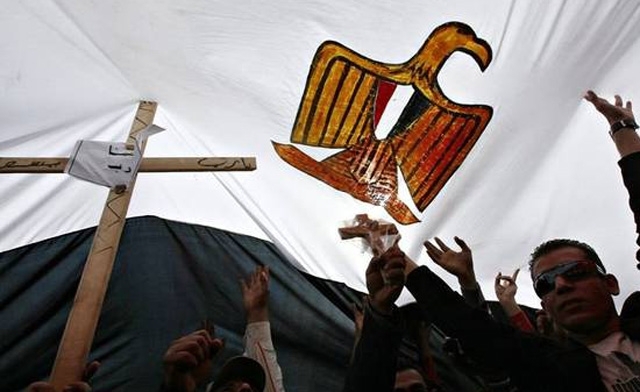Member of parliament Anissa Hassouna, member of the Foreign Affairs Committee, announced Monday to the press that the committees of human rights and legal affairs will begin discussing a draft law proposal on the establishment of an independent commission against discrimination.
While Hassouna was unavailable for comments, MP Diaa Dawoud, member of the Legal Affairs Committee, told Daily News Egypt the committee is going to look into the law proposal during Saturday’s session, but did not confirm whether the Human Rights Committee will participate in the session.
“As a member of the 25-30 coalition, we are still in the process of examining anti-discrimination legislations,” Dawoud said Tuesday.
The proposal Hassouna submitted comes in accordance with Article 53 of the Constitution, which condemns discrimination and incitement of hatred against citizens based on “religion, belief, gender, origin, race, colour, language, disability, social class, political orientation, or any other reason”.
According to the MP’s statements reported in the local press, one of the contributions of the law would be countering incidents of sectarian strife, which have recently been on the rise.
Hassouna submitted the proposal to parliament in April. It comprised nearly 29 articles, organising the role and formation of the anti-discrimination commission. The commission would mainly be tasked with receiving citizens’ complaints, providing discrimination victims with legal assistance, and issuing reports to the parliament.
The calls for the issuing of the law have been of particular interest for non-governmental organisations (NGOs) working on women issues, including New Woman Foundation and Nazra for Feminist Studies.
New Woman Foundation member Nevine Ebeid told Daily News Egypt Tuesday that they held discussion sessions with MPs regarding the law. “But it remains unclear whether our remarks will be taken into consideration in the law. Some issues could become problematic while establishing the exact role of the commission, which will require coordination with other state entities in order to be clearly defined,” Ebeid stated, giving examples such as prosecution and religious authorities.
More importantly, Ebeid pointed out that the commission is not legislation in itself, but a tool of law enforcement. “The parliament is in charge of issuing the laws that criminalise discrimination, but the parliament’s legislative agenda is uncertain, especially among priorities related to economic and security issues,” she said.
In drafts prepared by Hassouna and NGOs, the commission includes five committees for each type of discrimination, and a unit tasked with documenting and researching related crimes.


